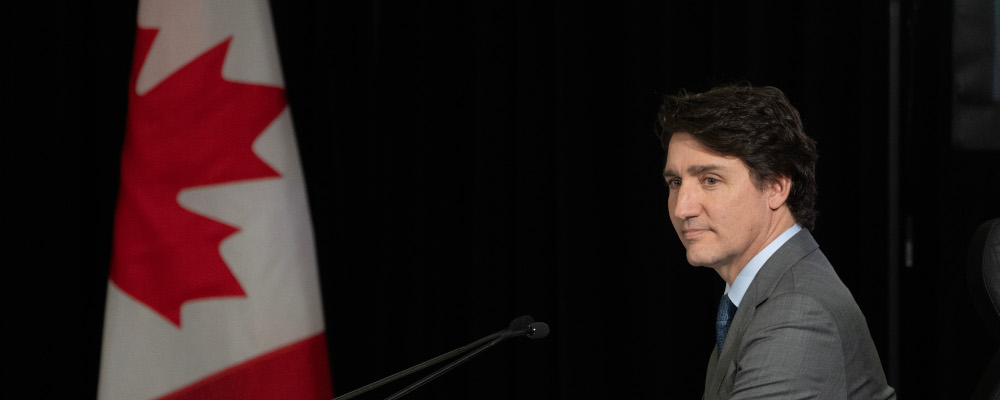In The Weekly Wrap Sean Speer, our editor-at-large, analyses exclusively for Hub subscribers the big stories shaping politics, policy, and the economy in the week that was.
The foreign interference inquiry is already proving its necessity
This week demonstrated that the initial inquiry into the foreign interference scandal by special rapporteur and former Governor General David Johnston was at best incomplete and at worst negligent. Readers will recall that his 59-page report mostly dismissed the allegations of foreign interference (including rejecting the case for a public inquiry) and instead dedicated a disproportionate share of its attention to bureaucratic leaks and the opposition parties.
The Hogue inquiry has exposed far more details about the scale and scope of foreign interference in Canada, the flawed internal government processes for relaying and sharing relevant intelligence, and ultimately when and what the prime minister and those around him were told by national security officials. The process hasn’t been hamstrung by security protocols as Johnston warned and others rightly dismissed. We’ve been able to learn a lot.
This week, for instance, we learned that the Liberal Party was warned that MP Han Dong’s 2019 party nomination was compromised by Chinese interference before the general election. The prime minister was briefed during the general election campaign itself and opted to leave Dong on the ballot and not disclose the information to voters in Don Valley North or the country as a whole.

In fact, Dong was permitted to stand as a Liberal candidate in two general elections and was only removed from the caucus when the allegations were made public due to enterprising reporting by Global News. That he remains out of the caucus more than twelve months after he was first ejected is ostensibly a sign that the prime minister now concedes that he ought not to have been able to run as a Liberal candidate in the first place.
The whole episode demonstrates that the Liberal Party was prepared to essentially trade off the basic integrity of Canada’s political system for its narrow electoral interests. How else does one describe what we learned this week? Think about it. We’re told that the party’s executive director received intelligence that raised serious concerns about Dong’s nomination campaign and then, based on his own apparent national security expertise, he recommended that Trudeau dismiss the information (“I had recommended [to] the prime minister that no action should be taken”) and get back to campaigning.
We wouldn’t have known these details had it not been for the public inquiry. The Johnston report merely told us that the prime minister had been briefed and hadn’t acted but failed to provide any details on when and how the information was shared with him and what went into his decision. It’s notable that he learned about it before Dong was first elected and therefore had the opportunity to stop him and yet ultimately didn’t.
Final point: credit must go to Pierre Poilievre and the Conservatives for refusing to compromise on a public inquiry. Poilievre faced tremendous pressure from the Liberals, the news media, and others to accept the Johnston-led process or be sworn in himself for a private process to review the information. He stood his ground and the result is that Justice Hogue’s important work has been able to unfold. We look forward to her report early next month.
Canadian conservatives find balance between new voices and the old guard
A lot has happened between last year’s Canada Strong & Free Network conference and this year’s successful gathering in Ottawa.
When conservatives met at last year’s conference, the Conservative Party had only recently started to build a sizeable lead over the Liberals in national polling. There were early signs of the party’s major progress with younger Canadians among the attendees and a general exuberance about the seeming direction of federal politics. But there were still outstanding questions about Conservative leader Pierre Poilievre’s ability to build durable support with key voter groups including urbanites and women and whether the Trudeau government would be able to reverse its own fortunes.
Just over twelve months later, the Conservative lead has not only persisted but it’s actually grown. This week, Abacus Data released a poll that showed the Conservative Party now has a 20-point advantage—its largest yet. The prospect of a Poilievre-led government seems increasingly probable.
This growing eventuality was reflected at this week’s conference. Although there was still the youthful energy present last year, it was balanced with a greater degree of discipline, professionalism, and an increasing number of old hands (including various former Harper-era staffers) who almost seemed to be reporting for duty.
This was evident in the conversations occurring in and around the main speeches and panel discussions. If recent Canada & Strong Free Network conferences were marked by the types of intra-movement debates about first principles that one might expect during a period in the political wilderness, this year’s had a far more practical vibe.
Attendees were principally interested in whether a new Conservative government would appoint outsiders into senior public service roles or repeal the Trudeau government’s internet regulation bills or cut personal income tax rates or sell off federally-owned airports or various other governing questions.
One gets the sense that the Conservative Party’s sustained polling lead is having, if not a moderating effect, perhaps a disciplining one. There’s something about the proximity to power that can cause political parties to sharpen their focus. This, for me, was a key takeaway from this year’s conference.
Yet as even more establishment Conservatives (and conservatives) re-emerge after nearly a decade in the wilderness, it would be wrong to minimize the new perspectives and voices that Poilievre has brought into the party. This was also on display this week. The conference panels weren’t merely populated by the usual suspects but instead introduced new and different figures, including those who participated in an excellent discussion about how conservatives ought to think about Indigenous reconciliation.
The party’s generational evolution was personified in the contributions from young Conservative MPs like Shuv Majumdar and the newly-elected Jamil Jivani as well as candidates like Dr. Matt Strauss (Kitchener South—Hespeler) and Greg Kung (Kanata—Carleton). A Poilievre-led cabinet would no doubt find a useful balance between experienced members and some of these newer ones.
Which brings me to my main conclusion: what I witnessed this week was a growing synthesis of the youthful exuberance that marked last year’s Canada & Strong Free Networking Conference and the sensible maturity present over the past few days. It strikes me as a powerful combination to compete in the next federal election and ultimately form a successful conservative government.
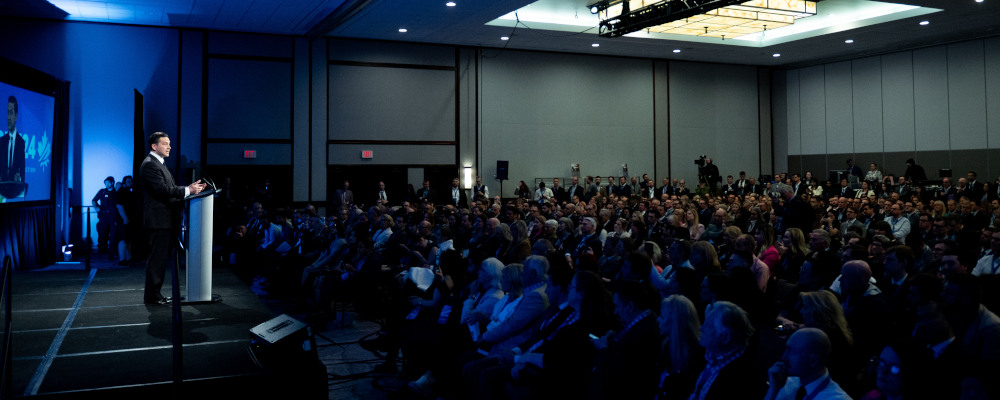
The Hub turns three and is just getting started
Yesterday was an exciting day at The Hub. We celebrated the third anniversary of its official launch in April 2021. It was a nice opportunity to look back at some of our accomplishments and lessons learned over the past twelve months.
We had a really strong year in terms of the growth of our audience size, web traffic, and engagement across The Hub‘s various channels. In March 2024 alone, we had 500,000 page views and nearly 100,000 podcast downloads. Our Saturday newsletter is now going to nearly 30,000 Hub members. And reader-provided donations and subscriptions are an increasing share of our overall revenue mix.
Yet perhaps our proudest accomplishment is The Hub‘s growing contribution to the country’s public policy debates. Over the past twelve months, we’ve helped to “mainstream” a renewed focus on economic growth and productivity, led a comprehensive inquiry into the future of Canadian journalism, and stood unequivocally in favour of Israel’s right to defend itself when far too few voices in the mainstream commentariat have been prepared to do so.
At the risk of sounding immodest, we like to think that we’re tilting the public conversation in the direction of a set of tried and tested ideas—including free markets, limited government, personal responsibility, and principled pluralism. A combination of the shifting national political dynamic and The Hub‘s own performance to date suggests that we’re having some success on this front.
Yet we’re far from satisfied. If yesterday was the end of The Hub‘s third full publication year, today marks the start of its fourth. We’re planning some new and exciting projects this year, including:
- Year two of the Hunter Prize for Public Policy which is now accepting submissions until May 31 on how best to address Canada’s housing affordability crisis.
- A new polling partnership with Pollara Strategic Insights that launched last week and will run through the November presidential election in the United States.
- A new data journalist starting next week who will use his talents to bring The Hub’s content to life in the form of interactive charts and graphs well as carry out his own original journalism rooted in data analysis and presentation.
- The launch of a new twice-monthly series that we’re calling DeepDives in which Hub contributors will go “deep” on key economic, social, and political issues in long-form articles and essays. The first DeepDive will be released on Monday, April 15 on the fundamental question: are Canadians more or less happy these days?
- A new seminar series in which The Hub will bring thoughtful speakers to cities across the country to share their insights and engage with members of our community.
- And various other initiatives with the goal to improve Canada’s public policy discourse and provide value for The Hub community.
It’s crazy to think that we’ve already been at this for three years now. It feels like we just launched yesterday. A big reason for the dissonance is because we’re having so much fun.
We wouldn’t be able to do this without the goodwill and generosity of The Hub’s listeners, readers, and financial supporters. Thank you.
Recommended for You
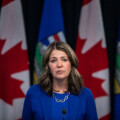
The Weekly Wrap: Stop painting Alberta as the villain of Canada

Where the CBC went wrong
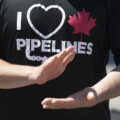
The Week in Polling: Majority of Canadians want the Alberta-B.C. pipeline; Optimism about the Carney government drops; 87 percent of Canadians concerned about the state of housing
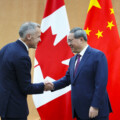
‘An approach that lacks principles’: The Roundtable on Canada’s confusing China reset and the lack of scrutiny on Carney

